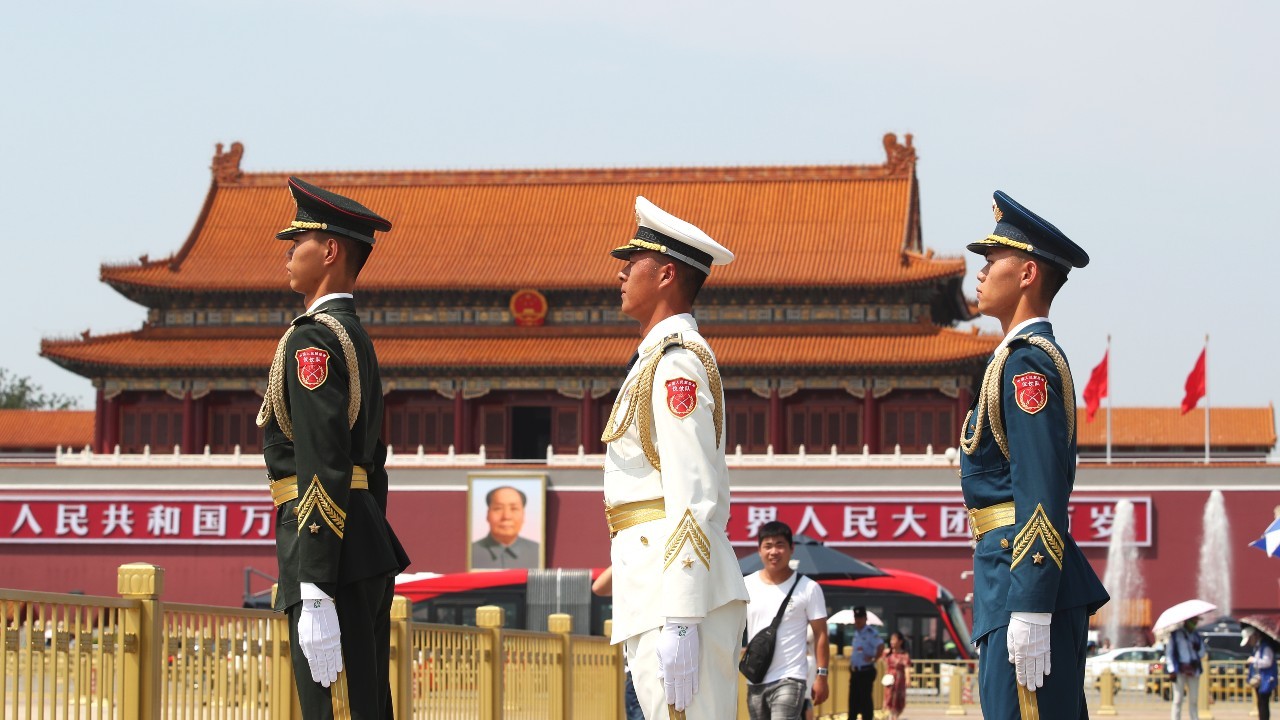“Paper tiger” was one of Chairman Mao’s favorite insults. The Chinese dictator did not, as he claimed once to Henry Kissinger, actually coin the phrase. But he enjoyed using it, particularly against the United States.
These metaphorical animals are again on the prowl. China has issued dire threats to Lithuania after that country made good on its promise to open a Taiwanese representative office in Vilnius. This is not a formal embassy. But it does include the word “Taiwan” in its title — breaching mainland China’s insistence that the self-governing island democracy is referred to only with circumlocutions, such as “Taipei”.
The Chinese party-state is furious. Global Times, an official news outlet with a luxuriant vocabulary, referred to Lithuania as “just a mouse, or even a flea, under the feet of a fighting elephant.” In which case, one might ask, why is the elephant so cross?
At any rate, Lithuania is utterly undaunted by the threats from a country roughly four hundred times bigger. The downgrading of the Chinese embassy in Vilnius, following the withdrawal of ambassadors, has no practical effect. Sanctions bounce off: Lithuania has no significant trade with mainland China (though exports to Taiwan are booming).
The Lithuanian policy enjoys strong support from the United States, including a new $600m export credit facility. Uzra Zeya, one of the seven Undersecretaries in the State Department, visited Vilnius to deliver a keynote speech at the flagship Future of Democracy Forum in Vilnius this weekend. Taiwan’s former Vice President Chen Chien-jen addressed the conference too, in the presence of the foreign ministers of Latvia and Slovenia. This exemplifies the steady diplomatic tiptoe towards closer relations with Taiwan. The new Czech government is also mulling similar steps. The more that mainland China complains, the flimsier its threats appear.
But some tigers are all too real. Countering China’s bluff is easy compared with the difficulties presented by Belarus and Russia. China is not going to send its hypersonic missiles thundering down on Lithuania. Belarus can and does use migrants to attack the borders of its European Union neighbors. And Russia is massing troops on the Ukrainian border in a way that gives serious cause for alarm about its intentions.
The comparisons are instructive. China is a far more serious threat to the United States, and to freedom everywhere in the world. But for Europeans, it is far away. Belarus is a tinpot dictatorship. Russia is a stagnant mess under the misrule of Vladimir Putin’s ex-KGB cabal. But they are close at hand. The Chinese Communist Party is fighting a pointless symbolic battle over Taiwan, fueled by obscure neuroses about its own legitimacy. Putin’s Russia has neurotic issues with legitimacy too (and thus a deep historical grudge about Ukrainian statehood, exemplified by Putin’s bizarre ramblings on the subject). But Russia’s aim is not to tweak diplomatic terminology. The Kremlin wants territory, and is willing to pay, and inflict, a terrible price in lives and physical destruction to achieve it. We ignore that at our peril.
But in both cases, the necessary countermeasure is similar: decisive collective action. Even the Chinese Communist Party cannot ignore the military, political and economic clout of Western countries working together. New alliances are already taking shape that will, belatedly, change the balance of power in the Indo-Pacific region.
Dealing with the Kremlin should be a lot easier. Europe has abundant economic and other means to squeeze Belarus over migration, and deter Russia when it comes to Ukraine. But these work only if it approaches these issues with its 27 members united.
Tiger hunting is risky. Better not try it solo.
Europe’s Edge is an online journal covering crucial topics in the transatlantic policy debate. All opinions are those of the author and do not necessarily represent the position or views of the institutions they represent or the Center for European Policy Analysis.




